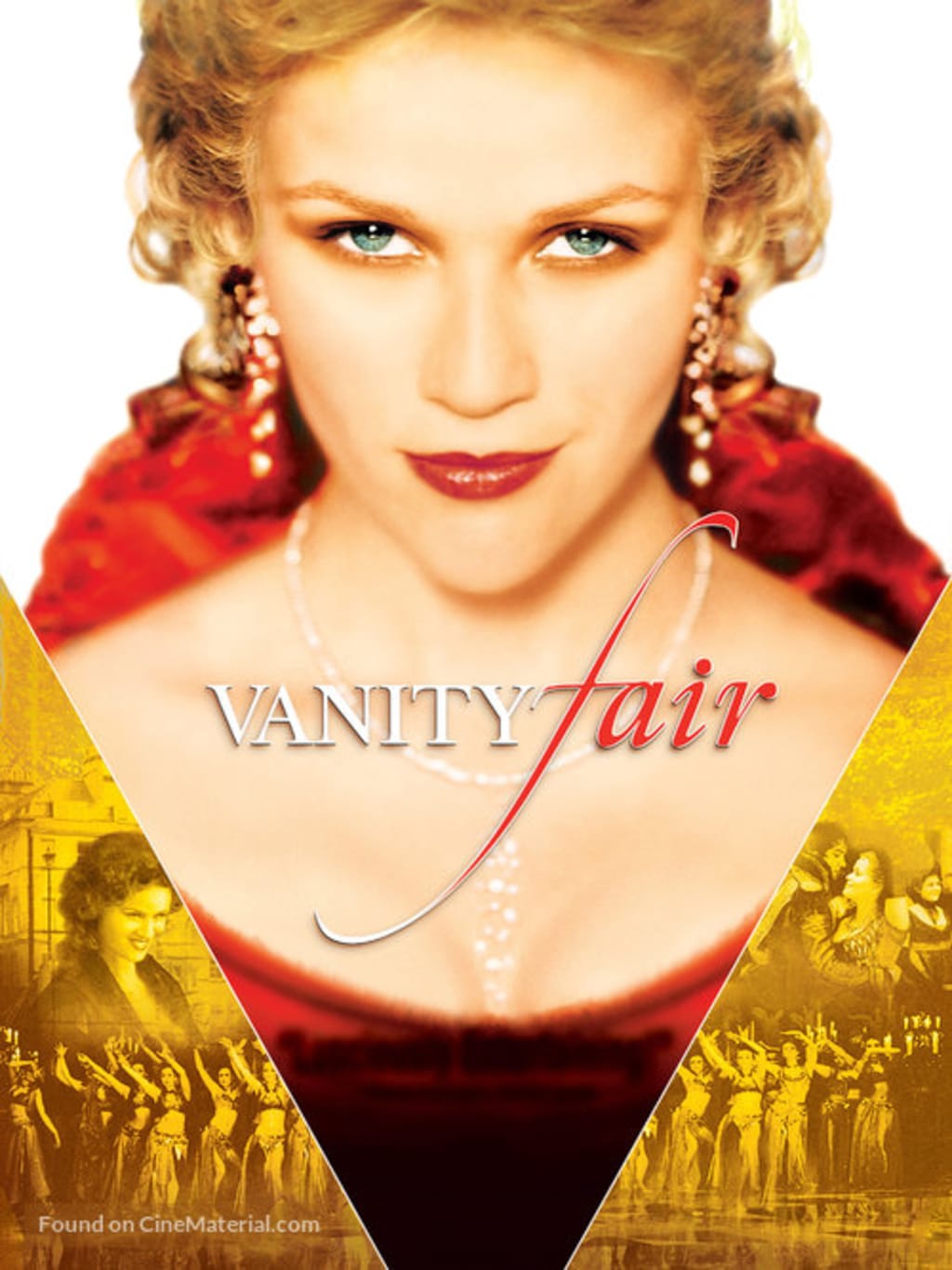Reading Journal: 'Vanity Fair'
How 'Vanity Fair' Portrays Early 19th Century British Society

William Makepeace Thackeray took the title Vanity Fair from a scene in John Bunyan’s Pilgrim’s Progress. Vanity Fair is a never-ending fair in a fair in a town called Vanity, which represents mankind’s foolish attachment to worldly things. Bunyan uses the word “vanity” in its biblical/theological sense, meaning things of the world which are trivial and worthless compared to things of the soul. The connotation of the word “vanity” which most people would be familiar with today is an obsession with appearance. Thackeray uses this reference to Bunyan to make the implication that England is a “Vanity Fair,” a place that is preoccupied with worldly gain and superficial appearances.
Early nineteenth-century England, as portrayed by Thackeray, is a hollow, morally bankrupt place, which forms someone like Becky Sharp and allows them to thrive. Becky was born into poverty as the daughter of a dissolute artist and an opera dancer (which to polite society would have been seen as little better than a prostitute) and grew up with little financial security. Her early experiences with deprivation give her a selfish, ruthless, and single-minded determination to, as her literary descendant Scarlet O’Hara in Gone with the Wind put it, “never go hungry again.” Vanity Fair follows Becky as she tries to charm, lie, cheat, and possibly sleep and kill her way to the top. She uses her underprivileged upbringing to try to justify the immoral things she does to survive and the ways she backstabs the people around her to get ahead:
"I think I could be a good woman if I had five thousand a year." [...] And who knows but Rebecca was right in her speculations—and that it was only a question of money and fortune which made the difference between her and an honest woman?
(Chapter 41, Page 38)
Thackeray appears to disagree with Becky’s assumption that a bad character is a result of unfortunate circumstances. Vanity Fair is filled with characters who are wealthy and privileged but morally bankrupt, such as the miserly and misanthropic Mr. Osborn, who turns against his friend Mr. Sedley after Mr. Sedley loses all his money and later ignores his widowed daughter-in-law Amelia (who is Mr. Sedley’s daughter), forcing her and her son to live in poverty; Sir Pit Crawley, Becky’s crude and lecherous father-in-law, and the Marquis of Steyne, a fabulously wealthy but immoral and dissolute nobleman who gets between Becky and her husband Rawdon. The high society Becky longs to join is rotten to the core, despite its gilded exterior. Aristocratic titles such as “Steyne” and “Bareacres” are meant to show the decay of the the English nobility.
Becky Sharp herself exemplifies the theme of appearances being hollow and misleading. She is beautiful, charming, and a talented performer able to perform whatever role is needed to get her what she wants: the humble sycophant to get into Miss Crawley’s good graces or the helpless abandoned wife when she needs to get brother-in-law’s sympathy after Rawdon leaves her. The glittering life that she and Rawdon lead as the toast of whatever society they are apart of is only a front which hides the fact they are perpetually broke. Their lifestyle is funded by cheating their friends at cards, not paying their servants, landlords, and creditors, and getting whatever they can from Becky’s sugar daddy, Lord Steyne. Becky Sharp, in herself, is a fraud.
There are very few people in Thackeray’s Vanity Fair who are not fake. Nobility like the Crawleys, who are long past their prime, lord it over those who are wealthier but have a less illustrious pedigree. The Nouveau Riche, like the Osborns, are willing to buy their way into the aristocracy: Mr. Osborn wants his son George to jilt his fiancee Amelia and marry a wealthy heiress from the West Indies so he can buy a title. People suck up to rich relatives they despise in hopes of being left money in their wills, like with the Bute Crawleys, who covet Miss Crawley’s money though they hate her for her godlessness and effete lifestyle. The only two completely virtuous people in the story, Amelia and Major Dobbin, are likable and sympathetic characters but are presented as naive and pathetic. Their genuineness puts them at a disadvantage in this fake and cut-throat world.
In Vanity Fair, Thackeray satirizes a world he sees as shallow and corrupt, where people are more preoccupied with appearances and where everyone ranks in a frivolous class system than with their individual merit. It is a world that a morally bankrupt schemer like Becky Sharp can easily exploit. Becky Sharp is the quintessential parasite but British society provides the ideal climate for creatures like her who, maggot-like, are a sign of a decaying system.
About the Creator
Rachel Lesch
New England Native; lover of traveling, history, fashion, and culture. Student at Salem State University and an aspiring historical fiction writer.






Comments
There are no comments for this story
Be the first to respond and start the conversation.